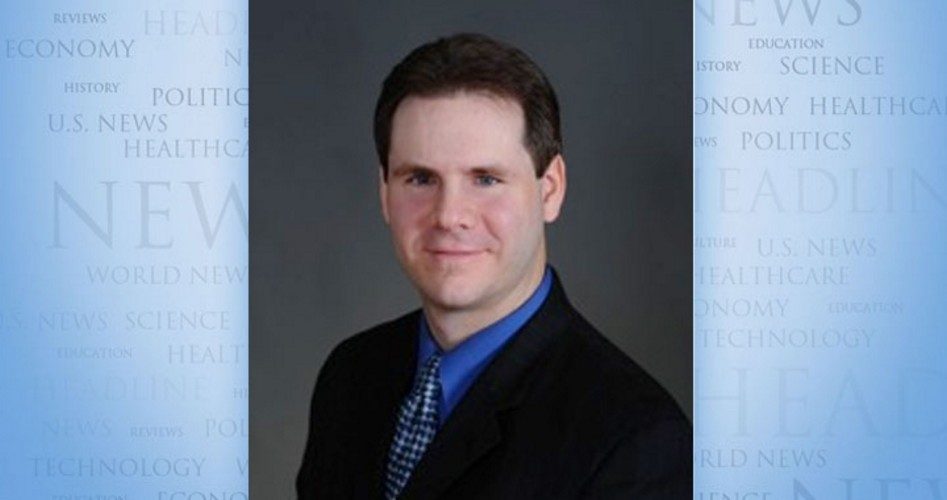
“Many of the great disasters of our time have been committed by experts,” Professor Thomas Sowell has observed. And the way was paved for this when we began preferring experts to wise men and forgot that being an “expert” should first mean being expert — not just being credentialed.
Mankind has always had a tendency to create a privileged power class divorced from merit requirements, whether in the form of aristocracy or a society of ideologues (e.g., Marxists). One good measure taken by French Revolution son Napoleon Bonaparte, among some bad ones, was to introduce meritocracy into what had been a stratified class system. The United States, too, was partially predicated on the idea that instead of being relegated to a class by birth, anyone with ability and drive could pull himself up by his bootstraps.
Of course, since man’s systems are imperfect because he is so, no land is flawlessly meritocratic. There’s always nepotism and corruption that allow incompetents to enjoy undeserved success. But it’s a matter of degree: You can have meritocracy generally operative or mostly thwarted, or something in-between.
Unfortunately, in today’s America the very concept of meritocracy itself — being rewarded based on skill and knowledge — has been under attack, ex-mayor and former newspaper reporter Thomas Buckley reminded us yesterday. After all, he points out, being better than someone at something could make that person feel bad, and being rewarded for your greater ability could make him angry.
As Buckley explains:
Meritocracy, according to a sadly growing number of academic papers, leads directly to a whole host of cultural woes. It is discriminatory. It is selfish. It is competitive. It traps people in “demeaning fears and inauthentic ambitions.” And, because the cultural systems that reward merit are racist, meritocracy in and of itself is racist as well. Also, because being better at something than someone else is (as the argument goes) a mere matter of luck, genetic predisposition, social background, and the ability to spend the time other people cannot spare to hone a skill, it cannot be said to be in any way fair to others and, therefore, to benefit society.
Yet the cultural revolutionaries attacking meritocracy absolutely have a replacement for it. Buckley continues:
Ironically, the anti-merit movement has been growing alongside another societal change — credentialism. Credentialism essentially argues that you must have the proper, pre-approved training, the right degree, and the right certification to be taken at all seriously in your field of choice. Other credentialists must then constantly review those pieces of paper to stay up to date with the zeitgeist for any particular endeavor. Finally, people without the right letters after their names and job titles can be dismissed out of hand. Not surprisingly, credentialism does not necessarily entail merit or skill — it’s just about checking the right boxes.
Sound a bit like identity politics?
Buckley rightly points that credentials have their place, and bestowing them was originated for good reason: They were meant to signify that various practitioners — doctors, electricians, skilled tradesmen, etc. — actually were qualified. But this was predicated on something: that the credential would correlate with real ability.
But increasingly today, credentials aren’t indicators of ability, but substitutes for it. “Far too often,” as Buckley puts it, “credentialism has almost no relation to actual talent….”
He mentions education degrees — think “Doctor” Jill Biden and her Ed.D. — as a prime example. But degrees in “Women’s Studies,” Urban Studies, and “gender” fields are other good examples of credentials generally sought to satisfy vanity, obtain pay increases, or gain entrance into a pseudo-elite brotherhood.
And all that’s needed for such degrees is having the time and money (or an identity that gets you a scholarship) necessary for their attainment and the “talent…to sit still in a classroom while someone else is talking,” as Buckley notes.
Of course, credentialed incompetents don’t acknowledge their actual status but, often exhibiting the Dunning-Kruger effect, fool others and often themselves into believing they have merit. “Credentialism seeks to take the trappings and, therefore, the advantages of excelling within a merit-based system without proving merit,” as Buckley puts it. He adds that conflating illusory credentials with merit has a very destructive byproduct: It can discredit meritocracy.
I’ll add that it’s clear why certain people demean meritocracy but extol credentialism: They have credentials but not merit. They’re envious of the latter, too. For just as people can be jealous of others’ money, looks, or status, so can they be jealous of their abilities. This may be especially intense if they lack the innate talent that has helped enable the object of their envy to excel.
On Tuesday, I wrote a piece on how America today has become an “Idiocracy,” with credentialed morons leading a charge into moronity. Do note that our “credentialed experts” have told us that boys can become girls, the government’s legalized counterfeiting operation (Modern Monetary Theory) is harmless, we should be concerned about new “pronouns,” “diversity” is a strength, children should be vaccinated against a disease that doesn’t imperil them, and that a nation that has allowed 85 to 90 percent of its post-1967 immigrants to be from the Third World is “white supremacist.”
This isn’t to diminish true expertise and legitimate credentials. But one lesson here is that we can’t just “listen to the experts,” especially since they don’t all agree. How many Supreme Court decisions, after all, are 5-4? Yet all the justices are credentialed juridical “experts, right”? We must exercise wisdom when assessing expert advice; without it, we’re lost.
But wisdom is seldom mentioned today, and this is no surprise. Wisdom is knowledge of what is true or good, and Truth and (objective) goodness are considered illusions in a godless, relativist age, where people subscribe to the Protagorean notion “Man is the measure of all things.” Hence the emphasis on degrees.
After all, God may as a gift bestow wisdom; credentials are given by man.




